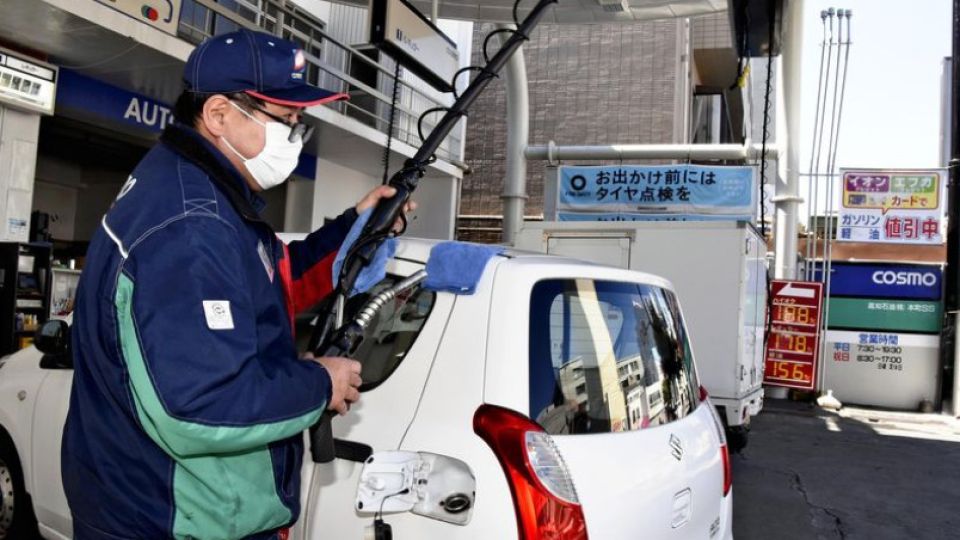March 17, 2022
TOKYO – Gasoline taxes may soon be lowered as the government is making arrangements to invoke a trigger clause to counteract soaring oil prices amid Russia’s invasion of Ukraine.
After Diet passage of the fiscal 2022 budget, which should happen much before the fiscal year begins on April 1, Prime Minister Fumio Kishida is expected to instruct the drawing up of additional large-scale economic stimulus measures, including ones for energy such as invoking the trigger clause to temporarily lower gasoline taxes.
The trigger clause is a measure to cut gasoline taxes by about ¥25 per liter when the average retail pump price remains above ¥160 a liter for three months in a row. This clause has been frozen in order to secure reconstruction funds in the wake of the 2011 Great East Japan Earthquake. Invoking the trigger clause requires revisions to relevant legislation.
The secretaries general of the ruling Liberal Democratic Party, its coalition partner Komeito and the opposition Democratic Party for the People were set to meet Wednesday to discuss specific issues, including how to design a system to invoke the trigger clause.
The government has already been providing subsidies to oil wholesalers as a temporary measure through the end of this month in order to keep the nationwide average price of gasoline at about ¥172.
Since the surge in crude oil prices is expected to be prolonged, however, the government has decided that further price control measures are necessary in addition to continuing the subsidies beyond March.
Referring to the possible invoking of the trigger clause, LDP Secretary General Toshimitsu Motegi said at a press conference on Tuesday that issues “will be comprehensively considered,” such as whether to take into account the prices of kerosene and heavy oil for the clause.

